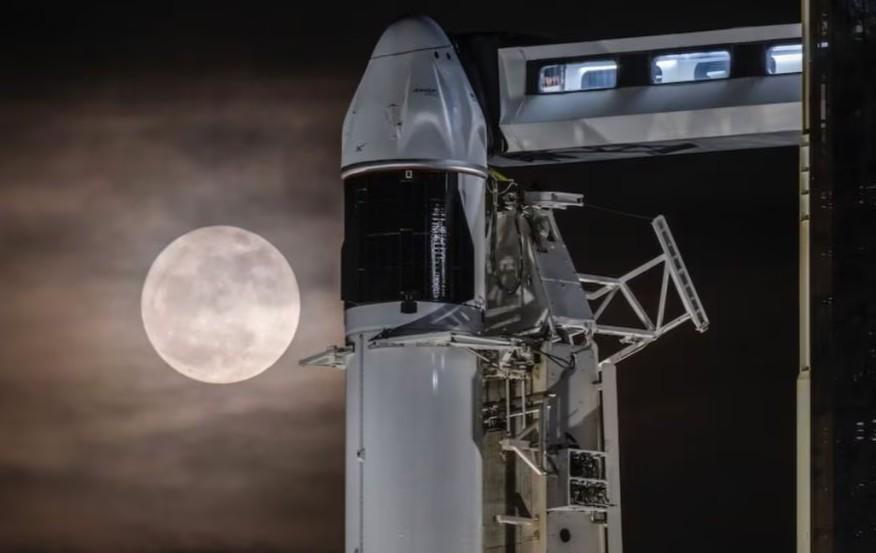
Pichai, Musk & Bezos competing to establish data centres on Moon: Report
The world’s top tech billionaires, Sundar Pichai, Elon Musk, and Jeff Bezos, are now competing in a new frontier: establishing data centres on the Moon. According to a recent report by the Wall Street Journal, these tech giants are exploring the possibility of storing and processing data on the lunar surface. The report highlights the unique advantages that the Moon offers, making it an attractive location for data centres.
One of the primary benefits of establishing data centres on the Moon is the stable environment it provides. Certain regions on the Moon have low temperatures, which could significantly reduce cooling costs for servers. Cooling is a major expense for data centres, as it requires a lot of energy to keep the servers at a stable temperature. By leveraging the Moon’s natural temperature, data centre operators could save a substantial amount of money on cooling costs.
Another advantage of the Moon is the abundance of open land, which offers the possibility of building huge facilities without the environmental concerns faced on Earth. On our planet, data centres often have to be built in areas with limited space, which can lead to environmental concerns and conflicts with local communities. In contrast, the Moon provides a vast, untouched landscape that can accommodate large-scale data centre construction without any of these issues.
The report suggests that Sundar Pichai, CEO of Google, Elon Musk, CEO of SpaceX, and Jeff Bezos, CEO of Amazon, are all interested in establishing a presence on the Moon. These tech giants are likely drawn to the Moon’s potential for providing a secure and stable environment for their data centres. With the increasing demand for cloud computing and data storage, the Moon could provide a unique solution for meeting this demand while minimizing costs and environmental impact.
Elon Musk’s SpaceX has already made significant strides in space technology, with its reusable rockets and crewed missions to the International Space Station. The company is also working on a new lunar lander, called Starship, which could potentially be used to transport equipment and personnel to the Moon. Musk has stated that he believes the Moon could be a key location for future space-based activities, including data centres.
Jeff Bezos’ Amazon has also been investing heavily in space technology, with its Blue Origin subsidiary working on a range of projects, including a lunar lander and a suborbital launch vehicle. Bezos has stated that he believes the Moon could be a key location for future human settlement and economic activity, including data centres.
Sundar Pichai’s Google has also been exploring the potential of space-based data centres, with the company filing a patent application for a “space-based data centre” in 2020. The patent application describes a system for storing and processing data in orbit around the Earth, using a network of satellites to provide connectivity and cooling.
The competition between Pichai, Musk, and Bezos to establish data centres on the Moon is likely to be fierce, with each company seeking to gain a strategic advantage in the market. However, the report suggests that the Moon’s unique environment and advantages could make it an attractive location for data centres, regardless of which company ultimately establishes a presence there.
As the world’s tech giants continue to explore the potential of space-based data centres, it will be interesting to see how this competition plays out. Will Sundar Pichai’s Google, Elon Musk’s SpaceX, or Jeff Bezos’ Amazon be the first to establish a data centre on the Moon? Only time will tell, but one thing is certain: the Moon is set to play a major role in the future of data storage and processing.
In conclusion, the report by the Wall Street Journal highlights the growing interest in establishing data centres on the Moon, with Sundar Pichai, Elon Musk, and Jeff Bezos competing to be the first to establish a presence on the lunar surface. The Moon’s stable environment, low temperatures, and abundance of open land make it an attractive location for data centres, and it will be interesting to see how this competition plays out in the coming years.






